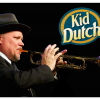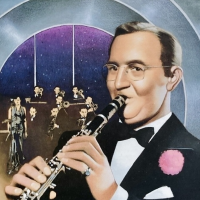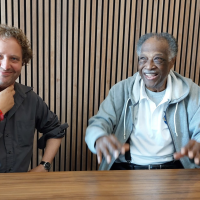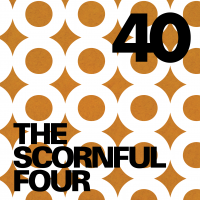Home » Jazz Musicians » King Oliver
King Oliver
If we were to take all the major trumpet players in jazz, line them up in chronological order, ask them who they listened to and were influenced by, then send them down the long dark chute of jazz history, they would run right smack dab into King Oliver.
Joseph Oliver was rumored to have been born on a plantation in Abend, Louisiana in 1885. His first instrument was the trombone, which by 1904 he was playing in the Onward Brass Band. He would continue with several bands, and started also playing the cornet. Being that New Orleans was a trumpet playing town, he had to work hard and long on his chops, and spent a lot of time learning to read music, which he became very good at, even in spite of having lost one eye. By 1910 he was leading his own band at Pete Lala’s the club where he started to garner a reputation, and where the name “King” was picked up, this due to his constant playing and able to obtain a sweet tone on his horn. He would go on to improve on his use of mutes and other means of getting unusual sounds out of his horn. There were also stories about trumpet battles in which he came out on top, having bested his local rivals.
By the year 1916, he teamed up with Edward “Kid” Ory on trombone, and started the Kid Ory and King Oliver Band, this was the best band in the city at the time, and they kept at it for another three years. In 1919 he wanted to leave New Orleans, and headed to Chicago where he was in two different bands one with clarinetist Lawrence Duhe, and another with bass player Bill Johnson. He stuck around Chicago until 1921 when he headed for California, with his new band the Creole Serenaders. They played in San Francisco for over a year, then he went to Los Angeles to play with Jelly Roll Morton, where they did some joint gigs around the city and caused quite a sensation. Returning to Chicago after his successful California tour, King Oliver was booked for an extended engagement at the Lincoln Gardens. The brothers Johnny and Baby Dodds, were part of the band at this time, and he sent to New Orleans for his protégé Louis Armstrong, whom had taken his place in the Kid Ory Band when Oliver left. Louis Armstrong was to be a lifelong friend to King Oliver, and kindly would refer to him as “Papa Joe”.
Read moreTags
The Brief Reign of King Oliver
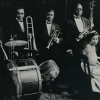
by Karl Ackermann
In 2020, I published A Map of Jazz: Crossroads of Music and Human Rights (WS Publishing), a book that looks at the culture of jazz on a timeline with cultures of the world. At more than 500 pages, the book is incomplete by necessity; there is no well-marked path, and the history is sometimes nebulous. However, as a map of events and the chronology of jazz music, it leads to unfamiliar places. The series Backstories dives deeper into people and ...
Continue ReadingNew Orleans Diaspora – Kid Ory and King Oliver (1922 - 1927)

by Russell Perry
In the last hour we listened to the first jazz recordings by the Original Dixieland Jazz Band in 1917 and the antecedents of the music. In this hour we will follow the diaspora of New Orleans musicians as they spread across the country bringing jazz with them. Playlist Host Intro 00:00 Kid Ory's Sunshine Orchestra “Society Blues" from Ory's Creole Trombone (Greatest Recordings 1922-1944) (ASV Living Era) 2:44 Kid Ory's Sunshine Orchestra “Ory's Creole Trombone" from Ory's ...
Continue ReadingTop 10 Moments in Jazz History

by Jeff Fitzgerald, Genius
10. In 1956, while in the throes of kicking his heroin addiction and late for a gig, Miles Davis picks up a small black snake that had wandered into his Missouri home and--thinking it is just a hallucination--mistakes for a clip-on tie. He completed the gig wearing the snake, which started a trend of Jazz musicians wearing skinny black ties that continues to this day. 9. The Buddie Petit New Orleans Jazz Band are performing in a poorly ...
Continue ReadingThe Rise And Fall Of Joe "King" Oliver This Week On Riverwalk Jazz

Source:
Don Mopsick
This week’s Riverwalk Jazz broadcast is an encore presentation featuring theater legend William Warfield. In a performance recorded in 1992, Mr. Warfield brings Joe King Oliver’s rich correspondence to life. Also,The Jim Cullum Jazz Band joins forces with two leading lights of the traditional jazz scene—Bay Area-based cornetist Leon Oakley and Chicago-based tuba player Mike Walbridge—to celebrate the legacy of King Oliver’s recorded work as a composer and groundbreaking bandleader. The program is distributed in the US by Public Radio ...
read more
Jim Cullum Jazz Band, William Warfield Celebrate King Oliver This Week on Riverwalk Jazz

Source:
Don Mopsick
This week's Riverwalk Jazz broadcast is an encore presentation featuring theater legend William Warfield (at right). In a performance recorded in 1992, Mr. Warfield brings Joe “King" Oliver's rich correspondence to life.. Also,The Jim Cullum Jazz Band joins forces with two long-time leaders of traditional jazz—Bay Area cornetist Leon Oakley and Chicago historian and tuba player Mike Walbridge—to celebrate the legacy of Oliver's recorded work as a composer and ground-breaking bandleader. The program is distributed in the US by Public ...
read more
Ted Daniel Talks King Oliver at WKCR

Source:
Chris Rich
Tune in for Ted Daniel's musical tribute to the renowned jazz cornetist on Columbia University's jazz radio program on the Columbia University jazz radio program with Ben Young, Monday evening June 6th from 6:00-9:00pm on WKCR 89.9 FM. During the program, Daniel will discuss the life and times of Joseph “King" Oliver his involvement in King Oliver's music, and IBMC's performance of King Oliver material in concert on June 7th. The following evening (June 7th, 2011) Ted Daniel's International Brass ...
read more
Carl Spencer
trumpetJuliet Varnedoe
piano and vocalsKid Dutch
multi-instrumentalistAround About Dusk
band / ensemble / orchestraPhotos
Music
Recordings: As Leader | As Sideperson



